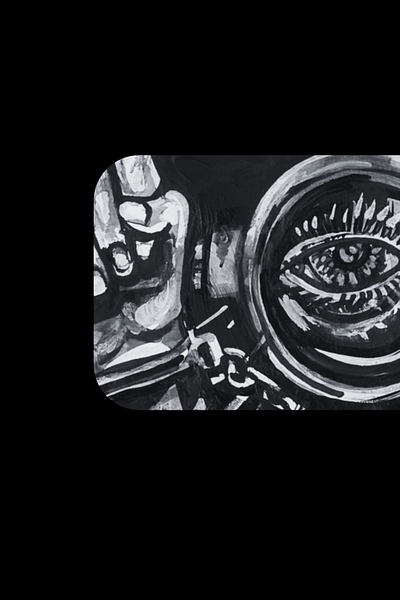10 community groups echo urgent call for national inquiry on settler-state police killings of Indigenous Peoples
Community groups express solidarity with the demands made by families of Indigenous People killed by police for an inquiry to address this state of emergency across Canada.
Police Oversight with Evidence and Research (P.O.W.E.R.), Coalition of Peers Dismantling the Drug War, Walls Down Collective, Unhoused Solidarity Collective Okanagan, UBC Social Justice Centre, Surrey Union of Drug Users, Pivot Legal Society, Care Not Cops, Canadian Students for Sensible Drug Policy Vancouver and Stop the Sweeps Kelowna echo the collective demands made by families, including Laura Holland and Martha Martin, of Indigenous People killed by police for an immediate public inquiry into policing across the settler-state of Canada, as well as for concrete justice and accountability.
We likewise follow the leadership of other organizations, including the Union of BC Indian Chiefs, First Nations Summit, and the BC Assembly of First Nations, in joining the brave families, who lost their loved ones to state sanctioned violence, to call for better.
After the call from the families, Joshua and Garnet Papigatuk were devastatingly shot by a Nunavik Police officer in Salluit, Quebec. Nunatsiaq News has reported that one of the twins was tragically killed. In the last two months, at least 10 Indigenous People have been killed by police across Canada.
This lethal force is a continuation of why law enforcement organizations were established and exist in many areas across the nation – these reasons are rooted primarily in settler colonial control and attempts at domination, all while police forces and officers face little accountability.
"RCMP are agents of ongoing colonization. They were created to control Indigenous people from relocating us, forcefully removing Indigenous children away from families for residential school, and many other ongoing injustices and killings against Indigenous, Métis & Inuit people. Other police forces in so-called Canada have followed lead in the ongoing injustices and killing of Indigenous, Métis and Inuit people," says Kali Rufus-Sedgemore, Executive Director of Coalition of Peers Dismantling the Drug War.
When P.O.W.E.R. launched in July, members brought attention to the fact that charges recommended by the Office of Independent Investigations (IIO), a police ‘oversight’ body in British Columbia, have never led to a conviction of a police officer. It has been 12 years since the IIO’s founding.
“We grieve people lost to police killings. And we come together in love and rage for the ongoing, non-fatal police violence we witness and that many communities, especially Indigenous communities, endure daily,” says Tyson Singh Kelsall, a researcher with P.O.W.E.R. and PhD candidate in SFU’s Faculty of Health Sciences.
“This police killing crisis is by design – and the complete lack of accountability from an occupying nation-state is the sanctioning of settler murder. We must all work to eliminate it immediately, before one more life is taken or devastated.”
P.O.W.E.R. researcher Karl Moen recounts a story of how, during one police interaction, a Vancouver officer described how he would kill him; the officer then detailed how he would frame Moen as having a weapon to justify it. Events similar to this, as have been brought to light by other P.O.W.E.R. members, can lead to a fear of standing up to police, including those who are neglecting the basic tenets of human rights – as doing so often means further targeting, including escalations of violence, threats of future arrests, and physical harm and sexual assault.
“This was a daily thing,” recounted Moen. “In the alleys, police can do anything they want.”
Unaccountable police violence is one part of the dehumanization of residents of the Downtown Eastside and other communities, particularly Indigenous Peoples and communities, by law enforcement organizations and Canada’s carceral apparatus.
Christopher Amyotte from Ditibineya-ziibiing First Nation was killed by Vancouver Police Department officers in 2022 outside of the Vancouver Area Network of Drug Users’ head office. In 2021, Julian Jones was killed by police on Opitsaht reserve in what community members have reported was a meant to be a “wellness check.” In 2024, Gitanyow Hereditary Chiefs demanded action regarding police killings, after the police officers who killed Jared Lowdnes (Laksilyu Clan, Wet’suwet’en Nation) and Dale Culver (Gitxsan & Wet’suwet’en) went free of consequence. All of these tragic losses are part of a larger pattern of violence perpetrated by armed agents of the settler-state.
Additionally, P.O.W.E.R has heard several people share stories with our group of so-called police-involved “wellness checks” turning into non-fatal forms of violence. We worry about this trend, and the potential that P.O.W.E.R. members and participants could be murdered by officers when calling out for support.
We reiterate Pivot Legal Society’s previous call to immediately eliminate police discretion and power to apprehend people under BC’s Mental Health Act, particularly in the context of multiple political parties in BC and beyond toying with the expansion of forced detention (“involuntary treatment”).
*11:18AM: Slight edit made on Nov. 11 to clarify who made original call for inquiry
Further resources
Gina Starblanket & Dallas Hunt: How the death of Colten Boushie became recast as the story of a knight protecting his castle
Police Brutality in Canada: A Symptom of Structural Racism and Colonial Violence
Two Weeks, Six Dead: Police Violence, Indigenous Dehumanization & Canadian Indifference
Policing 'Vancouver's Mental Health Crisis': A Critical Discourse Analysis
Involuntary treatment is not care. BC is spearheading its violent rise
P.O.W.E.R.: Another Person Dies in Vancouver Police Department Custody
Downtown Eastside Residents Say They Were Taunted and Harassed by Two Police Officers
BC Assembly of First Nations: Experiences With Bylaw in Prince George
P.O.W.E.R.: 17 orgs denounce involuntary treatment expansion
'Almost daily harassment': Vancouver police spokesperson named in bullying case






